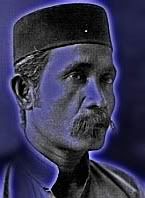The Best Detective Agency In Trengganu VI
Previous episodes: I, II,III, IV, V
Mat Sprong, Trengganu's extraordinary sleuth, decided to take a closer look at his client in the dark but something hit him on the head. By a hair's breadth he escaped being on the wrong end of an ancient, twin-edged badik. Now back in his office to lick his wound, he was disturbed by noises outside his aching head. He decided to go for a walk. Now read on...
Balik dari rumah Song ppala ambe bekok nnotong, sakit ddenyuk macang nak pecoh lepah kene puko ddamo denge ulu cok. Song nak demoh ppala ambe denge sebutir peluru panas hak anok dia buak keluor dari dapor ambe cepak-cepak kata tak soh, dak ape sakit ssikik ambe buleh ok.
Ambe tidor ppata dua hari baru suruk sikik lepah kena anging lauk. Bila balek ke opeh ada biru lagi sikik-sikik, tapi bila orang ccamek wak tanye ambe buak dok. Orang-orang Teganung kita dak pahang susah dak susah nak jjadi mmata gelak, sebak kerja ggining bukang macang polis ada banyak alak, ada senapang denge kayu ggandeng, boleh takap orang macang-macang. Kerja ambe ning kerja ngitta, solor dari jauh, dengor orang ccakak ggitu ggining. Malang tu ambe ssilak kira sebak gi dekak sangak, tapi nasib baik jugok sebak dak kena rodok denge badik.
Ambe rasa macang nak dok ssandor di pejabak sekejak, mmikir sikik, tapi sebak dah dua tiga hari dak balik, tikus ddalang setor Muda making galok dok ccerek sambil kerik beras. Dua tiga kali ambe nak ddegang dinding denge tangang tapi lepah kena pepah denge ulu cok ddalang gelak tu ambe rasa macang reng ambe dah abih tupoh atah tanah bbawah rumoh Song. Tapi hati ambe masih gagoh nak cari jugok budok Mbong tu sapa dapak, wala pong le ning pikirang ambe tengah gelibuk jjadi gamang pulok sebak serabuk dengor tikus dok ccerek.
Ambe ita ppitu napok hari ceroh lagi, ambe paka sokok terus keluar ikut tangga belakang nak ngellik takut orang tengok. Maklong sajalah orang-orang ssitu, dak leh tengok orang ppala bicuk nak tahu selalu guana gamok. Ambe dah mmalah nak jawak, mmalah nak nnawok.
Bila jjalang lluor tu baru hati rasa lega sikik, ppala pong rengang macang kkabu sekarong wala pong dok bbunying keruk-kerak bbawoh tali pinggang. Dah sariyang ambe dok mmikir sapa lupa nak lapik perut. Lepah cekok jalang belakang kelak Umno di Jalang Batah Baru, ambe singgah tepak keda jjujuk ddepang berek polis, gi kkeda Babu beli ssagong ddalang kertah ggulong. Ambe jjalang teruh sapa habis kapong sebak ambe nak tengok cahaya matahari petang ssinor atas paya, kemudiang seberang jalang mmacor atah sawoh padi sebeloh kiri pulok.
Padi baru habis, keruba dua ekor dok makang jerami, ada sorang dok ssadak ruput, dak napok muka sebak dia paka terendok. Bila bbunying ccelu' ddalang air ambe tengok balik sebelah kanan air ggerak bulak-bulak ttepat kkatok baru lopak dari daung terate, cahaya kuning bbayang atah air macang mah. Ambe lenggak ppala nak tuang ssagong ddalang mulok, dari jauh napok satu lagi Mah pulok, Mah Bibi naik basika dok tengoh laju turong bukit.
Ambe tengoh sapu mulok bila bbunying berek basika kereeeek! Mah Bibi tiba-tiba dudok ccokoh ddepang ambe, kaki sebelah dok jjuta atah jalang, sebelah lagi dok bereti atah peda basika Rudge. Hari tu dia paka skirk bbitik sapa bbawoh lutuk, rambok dia keriting molek, bicu bbibir dia meroh nnyale macang kereta paya briged. Memang dia orang jangok, leher dia panjang molek hhiah pulok denge ikat tali beldu warna hitang denge mmata warna biru dok ccotek tengoh-tengoh. Bila ambe dok tengoh tilek batu sebutir tu dengor suara Mah Bibi serak-serak.
"Guane Mak ppale mung bicuk tu...er, dak soh cakak, dok soh cakak, mung teratok."
Mah Bibi ambe kana masa ambe tulong cari basika dia hilang tepi basa orang mmaing rodak. Keh tu ambe selesa sekejak je sebak kalu musing ccuri basika ambe tahu sangak sape dia Pak Sauk. Mah jarang senyung, jadi susoh nak tahu dia ngayyor ke dak, tapi bila ambe jawak rasa-rasa macang napok dia ssengeh sikik.
"Ggitulah Mah, kalu jjalang ddalang gelak tu teratok sokmo lah weh."
Bila dia tanya pasa ape ambe jjalang jauh sapa Bbatah Baru ambe pong ceritalah sebab ambe nak cari ilhang, ppala dok mmusing nak selesa keh Song Janda Kaya hak laki dia tembor lesak. Ambe cerita habih sape dia Song, laki dia nama Mbong, tapi sapa ssudoh ambe dak cerita pasa kena pepah denge cok.
"Aku tengok mung ning panda Mak, tapi panda saja dak cukok, mung kena bijok sebak kadang-kadang benda hak mung tengok tu dak macang tu setabok," kata Mah.
"Ni sebak dok panda lah sapa ppala pong bicuk," ambe jawak.
"Ha, Mak, mung tengok kawang baik ambe tu, dia paka serbang kang, tapi dia Tok Aji ke dok?"
"Kawang Mah tu kalu nak kata Tok Aji dak lah sebak dia orang Ggali Sikh, serema orang tahu ggitu."
"Ha, tulah aku nak kata," Mah jawak. "Mung tengok tapi mung kena pahang benda hak mung tengok."
Bila habih dia ccakak, Mah Bibi gateh basikal pegi selalu dari situ. Sebelong dia konar masuk ddalang kapong tepak rumoh dia, dia ppaling sekejak, suara dia kuak tapi serak:
"Mung bang dengor Mak, mung bang dengor bbaik!"
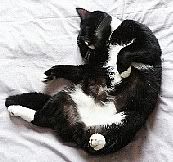 This would have been Koheng's cat, one of many that came to him from some warm places where cats dreamt and slept, just as he was zanging the zinc frames around his shop to open up for the day.
This would have been Koheng's cat, one of many that came to him from some warm places where cats dreamt and slept, just as he was zanging the zinc frames around his shop to open up for the day.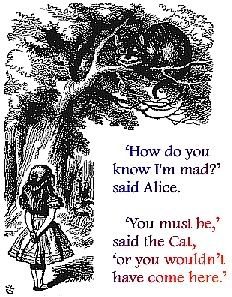 And even this Earth Mum — who reputedly lived in the forests of Kuala Brang — was no witch at all, just an unfortunate crone cursed with some awesome, unspeakable power. There was talk though of the hantu kucing who slept in the hearth of certain homes, and could be seen if you ventured out too early to the dapur. But even this ash-covered phantom cat was found wanting in his role, for we did not know what he did or what we had to do if we caught him purring by the para.
And even this Earth Mum — who reputedly lived in the forests of Kuala Brang — was no witch at all, just an unfortunate crone cursed with some awesome, unspeakable power. There was talk though of the hantu kucing who slept in the hearth of certain homes, and could be seen if you ventured out too early to the dapur. But even this ash-covered phantom cat was found wanting in his role, for we did not know what he did or what we had to do if we caught him purring by the para.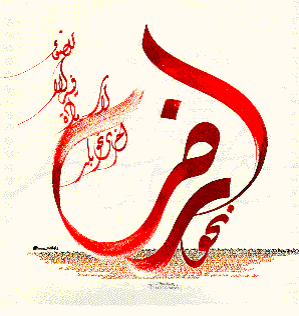
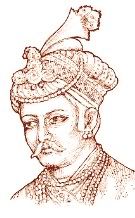 I think his name was Abdul Kadir. He had a thick moustache that wagged even as he spoke, his rotund body he squeezed through the frame of our front gate, as he bent his knees slightly to avoid toppling the head-basket on the overhead bar. Then he'd walk up to the kitchen side of our house, wooden stairs creaking under the weight of body and bread, then, placing himself on he topmost stair-plank, he'd lower his basket slowly onto the short apron that lay between the stair-top and our kitchen threshold. He sat, profused in sweat, muttering homilies on the heat of day. We'd buy from him the finger-shaped bread, roti keras and some kaya that he'd scoop into a glass, then off he'd go into the light, casting a wide, round shadow.
I think his name was Abdul Kadir. He had a thick moustache that wagged even as he spoke, his rotund body he squeezed through the frame of our front gate, as he bent his knees slightly to avoid toppling the head-basket on the overhead bar. Then he'd walk up to the kitchen side of our house, wooden stairs creaking under the weight of body and bread, then, placing himself on he topmost stair-plank, he'd lower his basket slowly onto the short apron that lay between the stair-top and our kitchen threshold. He sat, profused in sweat, muttering homilies on the heat of day. We'd buy from him the finger-shaped bread, roti keras and some kaya that he'd scoop into a glass, then off he'd go into the light, casting a wide, round shadow.